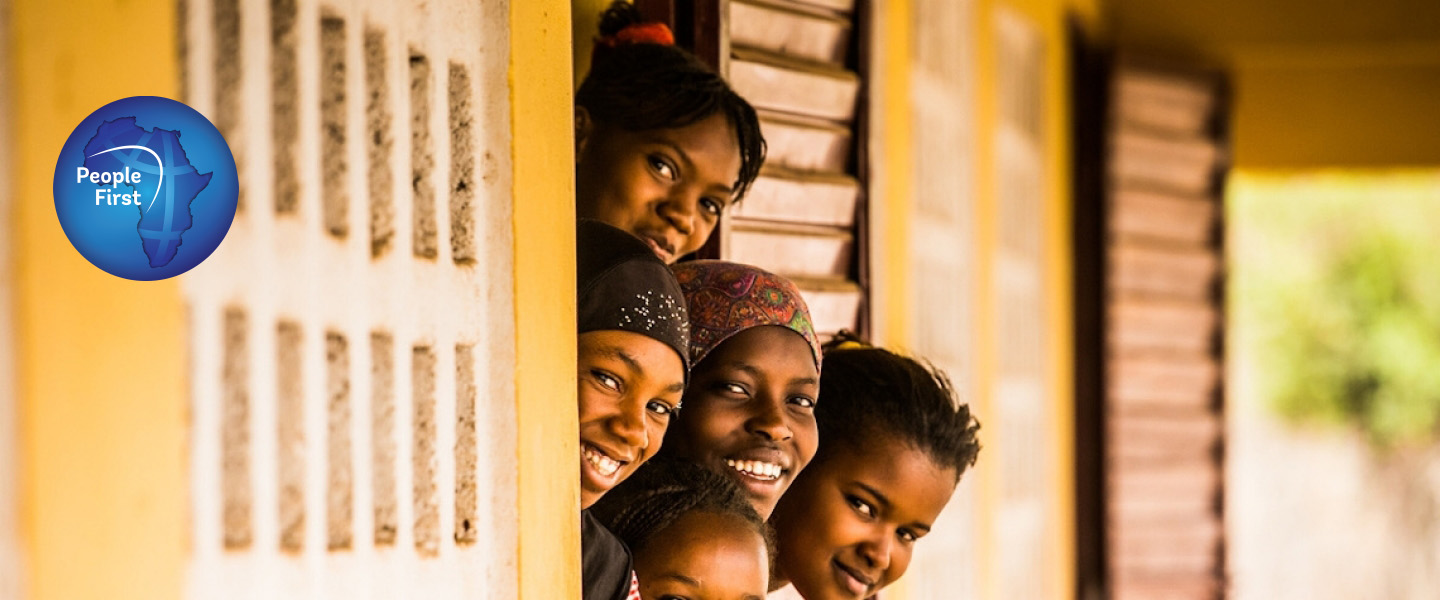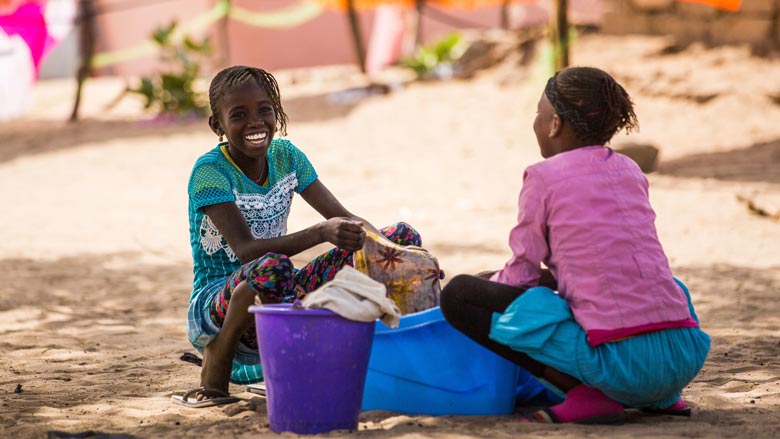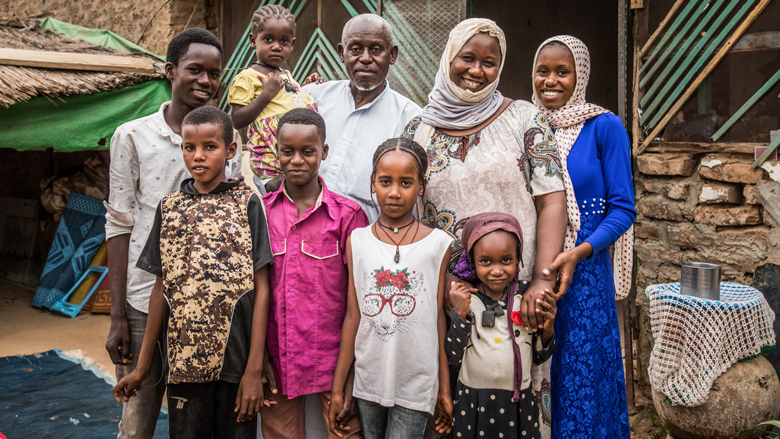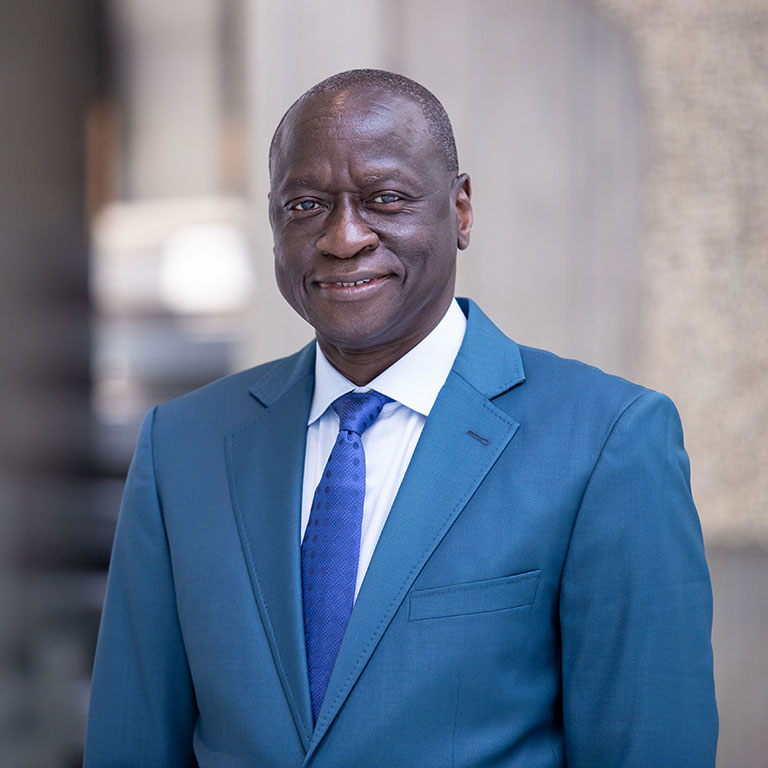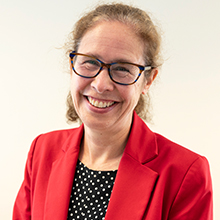Overview
Stretching from the most western point of Africa, across the equator, and partly along the Atlantic Ocean till the Republic of Congo in the South, Western and Central Africa (AFW) encompasses 22 countries that spread across semi-arid areas in the Sahel, large coastal areas on the Atlantic Ocean and along the Gulf of Guinea and tropical forest covering many countries from Guinea to the Republic of Congo, through Côte d’Ivoire, Cameroon, and Gabon.
Home to about half a billion people, the region has experienced accelerated urbanization, with cities hosting 48% of the population. With more than 40% of its population being under the age of 15, Western and Central Africa has one of the youngest populations in the world.
Many countries are resource-rich and export commodities such as oil (Gabon, Nigeria, Republic of Congo), cocoa (Côte d’Ivoire, Ghana) and cotton (Benin, Burkina Faso). The agriculture and food sector remains however central in most countries with agriculture providing 42% employment in 2019.
Economic outlook
In the Western and Central Africa, economic activity is projected to accelerate from 4.1% in 2024 to 4.3% in 2026–27. Excluding Nigeria, the AFW subregion grew at a faster pace in 2024 (5.1%), and it is expected to speed up slightly to 5.3% in 2027. The West African Economic and Monetary Union (WAEMU) is projected to grow at 5.9% in 2024 and 6.0% in 2027. Strong growth in Côte d’Ivoire, Niger, and Senegal is supporting the WAEMU’s performance.
Economic growth is expected to remain moderate in Nigeria. It is expected to increase from 3.4% in 2024 to 3.6% in 2025 and slightly increase to 3.8% in 2026–27. The gradual recovery of the Nigerian economy along the forecast horizon is driven primarily by the service sector—specifically, finance, information and communications technology services, and transportation—and, to a lesser extent, a rebound in oil production that converges to its OPEC+ quota.
Development Challenges
The AFW region has tremendous potential, with a young, dynamic population, abundant natural resources, and rich cultural heritage. However, it also faces enormous challenges.
The region hosts about a quarter of the world’s extreme poor. More than 70% of the region’s population now lives in fragile, conflict, and violence affected (FCV) countries. And of the region’s 22 countries, 20 are eligible for International Development Association (IDA) assistance.
The continent must create 15 million jobs annually to keep pace with population growth, yet current job creation falls far short. The challenge is particularly acute in AFW where over 80% of jobs are in the informal sector and high-potential sectors such as mining, energy, and commercial farming face a skills shortage, forcing businesses to import labor.
Currently, 220 million people in AFW – close to half the population – have no access to electricity, limiting their ability to operate businesses, generate income, or receive adequate education and health services, and only 26% of Africa’s population has internet access.
Current estimates for the region indicate that adverse weather events – such as heatwaves, floods, and droughts – could induce GDP annual losses ranging between 2 and 19% by 2050, driving millions more into poverty and exacerbating food insecurity.
World Bank support
The World Bank has been a long-standing partner of West and Central Africa. In fiscal 2024, the World Bank approved $11 billion for 66 operations in the region, comprising $1.7 billion in IBRD commitments and $9.3 billion in IDA commitments. About half of these commitments went to countries affected by fragility, conflict, and violence.
World Bank efforts in the region aim to put people at the heart of development and the institution supports among others the following initiatives to:
Address the jobs crisis through productive cash transfers, business and digital skills training, access to finance for businesses and entrepreneurs, and technical advice to prioritize reforms that promote private sector investment and job creation.
In partnership with the African Development Bank, SEforALL, the Rockefeller Foundation, and other partners, the Bank is supporting “Mission 300” – an ambitious effort to provide electricity access to 250 million people in Africa by 2030. With the recent historic IDA21 replenishment, the World Bank is positioned to mobilize $30 billion or more in IDA resources between now and 2030 to support energy transformation in Africa. Since July 2023, 21 million people in Africa have been connected to electricity, with projects underway to reach nearly 100 million more.
The World Bank is expanding its support for regional integration to address the key priorities of the African continent such as regional infrastructure networks, economic diversification, trade and transport facilitation, finance, human capital development, resilience, and fragility.
Partners
Building on a long history of regional trade, the sub-region made impressive progress in regional cooperation. With ECOWAS, it hosts the largest economic and political union in Africa and includes two monetary unions - the West African Economic and Monetary Union (WAEMU) and the Central African Economic and Monetary Community (CEMAC) that cover 14 countries between them.
The World Bank is a dedicated partner for Western and Central African countries, helping them deliver strong development outcomes for their people by focusing on priorities detailed in the World Bank Africa strategy. The strategy also prioritizes regional integration and research to maximize development impact for clients.
Research and Analysis
Knowledge is essential for governments to make better policies and institutions to make aid more effective. Our most recent regional studies can be found here and analytical work by country is published on each country’s website. This paired with strong analytical work by sector can help promote substantive discussions and drive evidence-based policy making around key development issues.
Last Updated: Apr 24, 2025
